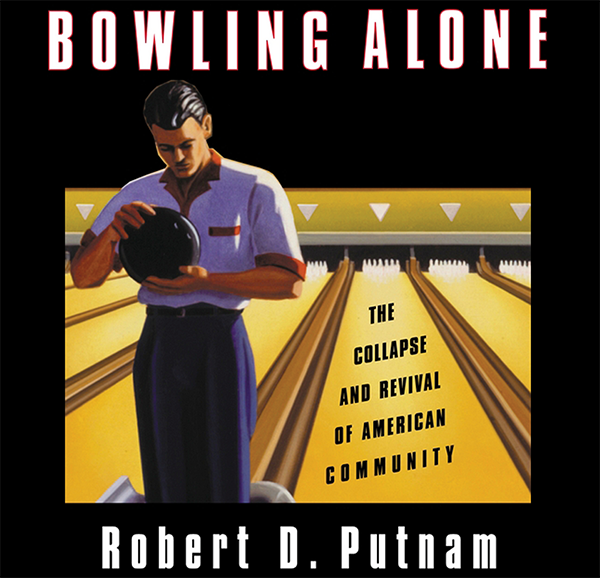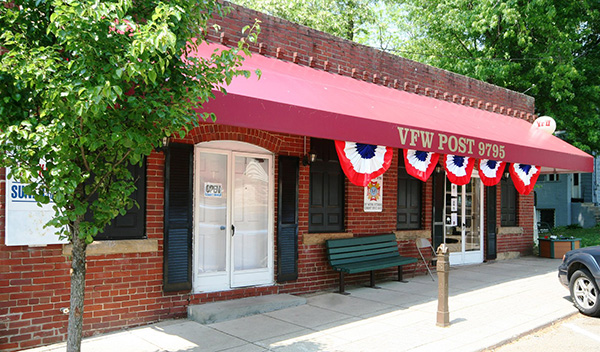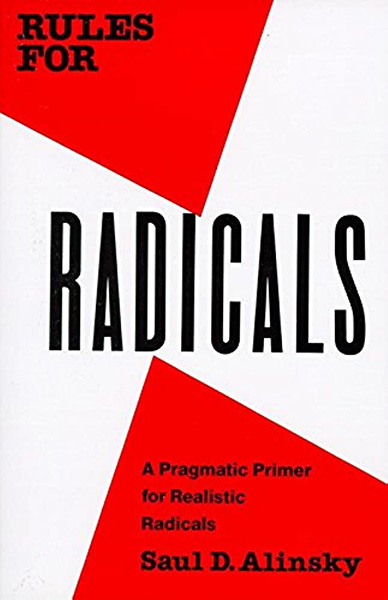Reforging America, Part II
The Crew, American Renaissance, April 21, 2023

Credit Image: © U.S. Navy/ZUMA Wire/ZUMAPRESS.com
Subscribe to future audio versions of AmRen articles here.
This is the second article in a two-part series that suggests ways for whites to develop race-conscious communities that actively counter the narrative to which contemporary Western media and governments subject them. In it, we explore how whites can encourage traditional values, foster shared sentiment, and integrate their community into broader society. We intend this series to help white men and women of any age, but we are especially interested in reaching adolescents and young adults, as they are the age groups most directly subjected to the so-called “Diversity, Equity, and Inclusion” programs of state and private institutions. We write from personal experience, in which many of our own efforts have enjoyed recent, notable success. We believe that the reader will be surprised and encouraged by the novel tactics of our overall approach. Any questions or comments can be directed to imperiumaeternum14@protonmail.com.
Community organizing: strength through participation
The preceding installment in this series described the soft skills necessary to form a crew as a starting point to building a pro-white community. In this installment, we describe the hard skills required to empower your crew to reforge America, at least within your locale. This is the harder step and is for most of us a lifelong challenge.
The importance of acquiring skills
There is a growing sentiment among some young, aware white men to spurn college degrees and other credentials due to increasing discrimination against them within the gatekeeping institutions. This is understandable, especially considering the high costs involved, but there is today a need for competent and credentialed white men with our views. You are a lot more useful to our movement with a decent résumé, marketable skills, and the ability to earn money. For some, that means going to college. For others, it means participating in the trades or similar work. It might mean tirelessly applying to jobs at Fortune 500 companies, joining labor unions, or even entering the military to develop hard skills.
Hard skills separate you from the Human Resource drones, low-level salespeople, burger flippers, and communications majors. Blue-collar trades such as bricklaying, welding, plumbing, carpentry, painting, and construction project management are not going away. In fact, those occupations suffer in many regions from lack of skilled labor. White-collar professions such as law, medicine, engineering, and high finance also provide vital skills and are generally very lucrative.
If you have the opportunity and resources to pursue meaningful advanced education, do it. If something sounds intimidating, it is probably a good place to test yourself. If you can find work at a large public firm, even if it is filled with homosexuals and HR commissars, do so. While there, take advantage of all the resources and opportunities you can, while discreetly sharing your ideas among receptive co-workers. Gaining skills and experience in the decadent and chaotic mainstream will help make you self-sufficient. You will never be able to achieve anything meaningful without acquiring material qualifications and a decent income. You might also be surprised at how well you thrive in some of those environments. A crew of successful businessmen and tradesmen can then establish a closed economy, trading resources and services among each other, as do many immigrant communities in America today.
Participate in legacy organizations
In his classic 2000 book, Bowling Alone: The Collapse and Revival of American Community, Robert Putnam bemoaned the decline of many American social and civic organizations. He saw that decline as indicating an increasingly isolated population whose members year after year held less and less in common with one another. For him, financial capital was steadily replacing social capital. New forms of entertainment technology were luring away those who might otherwise have joined athletic leagues or become involved in civic preservation. This fundamental change was causing a massive decrease in organized social participation by Americans.

As attendance at local PTAs, churches, and business social clubs has dwindled, America has begun to seem a little hollow. Kids no longer hang out at malt shops. The Freemasons have lost nearly four million members since the 1950s. Membership in the Elks declined from 1,600,000 in 1980 to 803,000 in 2012. Rotary club membership is down to 330,000, only 10 percent of whom are under 40. The trend is clear: Younger whites, who themselves make up a smaller percentage of the population, have moved on and become less socially involved. The fate of many institutions is steadily sealed with the passage of time. More lodges and clubhouses will close, church parishes will be consolidated, and many once-important institutions will disappear.
As you consider the causes of the breakdown of American society that began in the latter half of the 20th century, several possibilities come to mind: the upheaval of the Vietnam war, the sexual revolution, the rise of dual-income households in the 1960s; the 1970s energy crisis, and even the prosperity boom of the 1980s. Those events were some of the drivers that fundamentally changed social interaction in the U.S. The attacks on New York City and Washington on September 11, 2001 were also important.
Whatever the cause, to many, this trend is just something to be lamented over a beer. You might even feel that some of those institutions are outmoded and should bite the dust. But you and your crew should remember that many of those disappearing organizations leave behind important legacies from their long histories of social contribution. Real estate, tax benefits, exclusive financial products, remnants of generational white wealth, and much more still survive within the skeletons of otherwise abandoned clubs. You must learn to take advantage of those remaining resources to set up clubhouses, manage memberships, and so on. Organizations with many familiar brand names, such as the ones cited, still exist. Their remaining chapters, full of boomers and older members, are eager to recruit younger members and would audibly thank God if dozens of young men appeared at their doorstep asking to sign up. The nominal dues required might well be worth the benefits of membership.
Those benefits are both physical and intangible. Consider the vast array of VFW Posts, American Legion Halls, and Elks Lodges, many teetering on the verge of irrelevance. Consider also the charities and political organizations that are often run indifferently as pastimes. Each of those pieces of living history has entry points and connections to other institutions. A committed group, working together, can join such organizations, take control of them, and reshape them to align with a renewed set of goals.

Credit: OZinOH via Flickr CC BY-NC 2.0
Take note, for example, of the history of an organization now at the opposite end of the political spectrum: the Young Women’s Christian Association (YWCA), founded in the 19th Century. Its original mission was to provide charitable religious services to women and children. By 2009, however, the leaders had changed their mission statement to read “eliminating racism, empowering women and promoting peace, justice, freedom and dignity for all.” The evolution of the YWCA is a prime example of how activists can leverage existing organizations for their own benefit.
Structured organizations lend credibility to your crew. They provide an opportunity for pageantry and tradition and a forum from which to inculcate values in the next generation. With tact and politeness, you can easily take over dying social clubs in your area. Look for established political and business organizations with loose guidelines, aging memberships, and useful assets. If older, wealthy businessmen with worthwhile connections remain within these organizations, that’s even better. Often, such takeovers reveal unexpected rewards. For example, taking over a local library committee might result in access to local meeting sites, the free use of copy machines, or even control over the books to be added to library shelves. Joining your university’s student government or other legacy committee might yield exclusive after-hours access to valuable campus facilities, bureaucratic sway within the school, or social credibility that will permit you to shift discourse in productive directions.
The process of assuming control of organizations is often straightforward. Showing a willing resolve to become actively engaged typically attracts interest from leadership. Some roles in an organization — such as that of secretary, which usually involves tedious note-taking — are often readily available to the willing newcomer.
Once established in a position of leadership, you can begin to shift institutional direction in various ways. You can forcefully block destructive actions and apply more subtle pressure against less-destructive proposals. You can plant new ideas in existing members and recruit like-minded new members. In such ways and over time, you can subvert anti-white values already in an organization and fundamentally transform it. Done correctly, such a transformation does not need to rupture relations with other groups, and you can leverage your newfound power to establish influence over those groups as well.
Charisma and creativity can go a long way, and we have seen amazing things accomplished discreetly in existing organizations. Instead of forming a sketchy identity group prone to attract weirdos and the attention of your enemies, take over your local Moose lodge, boxing gym, or town planning committee. Join a failing church and become the one person most enthusiastic about saving it. What’s Antifa going to do — release the membership list of the local art museum or declare the volunteers at the town library dangerous radicals? The charge will not make sense to most people. Operating intelligently under familiar names is a great way to pursue your goals while limiting negative attention.
This is also a great way to recruit and convert select normies, meet members of the opposite sex naturally, and maintain and improve your local community. Regular membership in such organizations creates routine, culture, and tradition for you and your crew, and provides a platform to carry out the operations of your band of Warwolves (see Part I). As you make progress, you might well see your town come back to life.
Recall Saul Alinsky’s sixth rule in Rules for Radicals: “A good tactic is one your people enjoy.” Such infiltration of legacy institutions, if carried out well, can be a fun way to form new relationships, engage in subterfuge, provide education on history and current events, and enjoy the thrill of revolutionary activity paired with community participation. The political Left, now mired in tiresome thought-policing and dysgenic narcissism, originally had fun in the creative destruction of subverting media outlets, universities, and religious sects. You can now do the same.

Picking your battles: the importance of ops
Your crew must not exist merely as a social club. Your activities should include regular social functions, such as camping trips, meals, sports events, and even leisure travel, but never forget that your mission should also include the betterment of your members and the furtherance of your beliefs. Success involves the formation of a network of well-adjusted men with significant income and stable marriages resulting in the birth of many white children at rates above replacement levels. In effect, once successful, you will have formed a society and economy parallel to the current decadent one, in the same mold as the parallel societies of the Amish, Mormons, and Hasidic Jews. Education, resource sharing, and making money should be key elements of your society, and they will provide incentives for members to stay involved and for new recruits to join.
A broad campaign aimed at such a goal will lead your crew into many smaller missions, both long- and short-term. We call those missions “ops” (short for “operations”), and they will grow in sophistication and rewards as you grow in qualifications and skills. Certain locations and situations are prime for ops: college campuses, large corporations, unions, local and state government, churches, nearly abandoned towns, certain community events and festivals, and, never to be underestimated, the great outdoors. These resource-rich areas provide ample opportunity to become socially and economically entrenched. It is hard to give specific advice here, because places and situations vary greatly and often hold unique characteristics, but here are some rough guidelines for identifying them.

Credit: Michael Levine-Clark via Flickr CC BY-NC 2.0
When evaluating a prospective op, keep these questions in mind:
- Is there power, cultural significance, or money meaningfully connected to this involvement (i.e., is this a good use of your time)?
- How much effort or time would this op require?
- Can this involvement be scaled to more rewards in the future and provide more numerous and complex roles for other crew members?
For example, if you currently attend a university and find a campus job that requires little work, provides broad free access to school facilities and resources, pays decently, and allows you to add some of your crew to the payroll over time, you have found a worthwhile op.
In the real world beyond the college campus, we have seen several ops turn into serious moneymakers for our crews. Examples include enterprises that market, purchase, rent, and maintain properties; provide cash-advance loan services; and support local government offices. Gatekeeping jobs, such as engineering, accountancy, consulting, and banking, can be particularly useful. Once one member of the crew has established himself as a competent employee, he can recommend the employment of others. Have your crew open themselves up to as many financial ops as possible, such as by obtaining real estate licenses, becoming notary publics, and taking useful certification exams. Obtaining cash and other assets isn’t the end goal of a satisfied life, but it is undoubtedly an important means to achieving that life. Business involvement and its related responsibilities will also develop your crew not only into more accountable men, but also savvier and, with time, wiser ones.
Some ops are short by nature, such as sending a delegation of your crew to a weekend trade show or conference, visiting with like-minded crews, appearing at political gatherings, and even just scouting out places and events of interest. Those little ops add flavor and purpose to your crew’s activities.
Do these things right, and you and your crew will be taking part in history. What you can do will vary by your location, of course. If you are in Washington, DC, for example, there will be no shortage of embassy events, political receptions, balls, formal dinners, and other events for you to infiltrate. In a rural area or a smaller city, there will be fewer such “easy” options, and you will need to use your imagination. Many of our crews have experienced great success in hosting regular events. Lastly, if an op drags on or ceases to provide tangible benefits, drop it and move on to the next one in the pipeline.
By engaging in a few lucrative business ventures that provide substantial community involvement, you will have something in which others will want to participate. It is truly amazing what a small crew of competent men can do, and it is equally amazing how many of your peers will want to join. These ventures are often spearheaded by the most entrepreneurial and resourceful members of a crew, and practical experience will show you which combination of factors is most effective.
Formalized organizations provide venues for community events, socialization, child-rearing, religious practice, academic study, recreation, and many other activities. However, no organization should be the central focus of a community. A key advantage of our approach is decentralization. There is no need for all members of a community to be members of the same organization. A loose confederation allows for more secure operations.
It goes without saying that your communities must never use violence or illegal activity to attain their ends. Persons who advocate such actions should be viewed with suspicion and shunned; they may be unstable or even on the enemy’s payroll. Honest work will build a rewarding community, and there are so many legitimate channels for self-improvement and the renewal of interpersonal relations that violent or illegal action should never enter your mind.
White heritage has a noble legacy that merits protection, and it is up to every white man to form family and social units that help preserve that heritage. Engaging in formal organizations can play a critical role in that process and should be considered as part of the broader strategy to reforge America.
A Song of the White Men
Rudyard Kipling
Now, this is the Cup that the White Men drink
When they go to right a wrong,
And that is the cup of the old world’s hate—
Cruel and strained and strong.
We have drunk that cup—and a bitter, bitter cup—
And tossed the dregs away.
But well for the world when the White Men drink
To the dawn of the White Man’s day!
Now, this is the road that the White Men tread
When they go to clean a land—
Iron underfoot and levin overhead
And the deep on either hand.
We have trod that road—and a wet and windy road—
Our chosen star for guide.
Oh! well for the world when the White Men tread
Their highway side by side!
Now, this is the faith that the White Men hold
When they build their homes afar—
“Freedom for ourselves and freedom for our sons
And, failing freedom, War.”
We have proved our faith—bear witness to our faith,
Dear souls of freemen slain!
Oh, well for the world when the White Men join
To prove their faith again!















